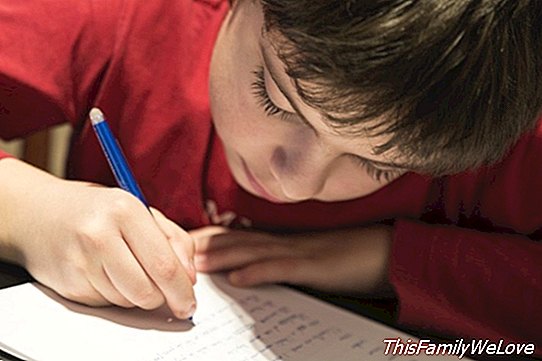Easter without duties, the new request of CEAPA to Education

¿Homework Yes or no? This is a debate that has long been presented in the field of education. Is it the best way to consolidate knowledge after school lessons or is it taking time away from the youngest ones that they could use in other activities? In this last position the Spanish Confederation of Associations of Fathers and Mothers of the Students is affirmed, CEAPA.
In fact, in a recent communiqué, CEAPA asks Education to reconsider in the face of Holy Week. This organism requests that during this holiday period children be exempt from homework and they can enjoy to the maximum a more than deserved rest. A claim that is made to understand that these activities are not related to school success.
#STOPENDERS
The position of CEAPA is clear. In his opinion, after implementation of the LOMCE and the change of curriculum has increased the time that children have to dedicate at home to do homework after school. This position understands that this translates into the fact that the school does not respond adequately to the educational needs of its students
CEAPA refers to the complaints of the families, who affirm that their children are left overloaded for homework and allude to problems in their day to day. Tensions between parents, mothers and children, or an increase in pathologies such as headaches, back pain, abdominal discomfort and dizziness, as warned by the World Health Organization, WHO.
For this reason, CEAPA asks parents to defend the straight to their children, which they understand is not being respected. The one of rest and the one of not including the duties in the vacations of its children, discarding like this all the problems that are related to them:
- Duties are not related to school success.
- Duties, far from promoting the integral development of the person, are part of the harmful legacy of an obsolete pedagogical method based on memorization and repetition of content.
- They provoke social inequalities. The quality of better or worse performance of the duties depends on the socio-economic and cultural level of their environment. While some families try to help their sons and daughters, others resort to private classes or academies and many others have neither the educational level nor the money to pay for these supports. In addition, the duties in many cases count in the qualifications and not doing them can be reason for sanction.
- They create tensions between fathers and mothers and sons and daughters. In addition, many times, they are left without playing and doing other activities because they have to do their homework, which generates more rejection. It is true that boys and girls have to learn what their obligations are, but homework is not the vehicle for it, nor can it be the reason for them to waste their time
- They constitute a problem in family conciliation because they do not have time to supervise work outside the school.
- Minors need time to carry out sports, cultural or recreational activities, which also contribute to their personal development.
In favor of homework
If the position of CEAPA is contrary to the duties, other entities such as the National Catholic Confederation of Parents and Parents of Students, CONCAPA, advocates its permanence. This entity understands that the duties "are necessary to consolidate what has been learned in the educational center, although they must be proportionate and consistent with the educational level of the student".
Of course, CONCAPA understands that in any case, they should always be consensual between families, schools and teachers. In any case, from their point of view, families should not be encouraged not to respect and comply with the norms, as it would be a disservice to education and society.
Damián Montero




